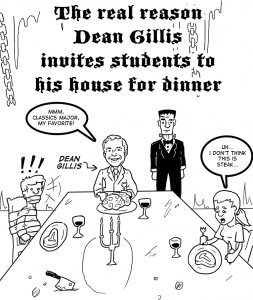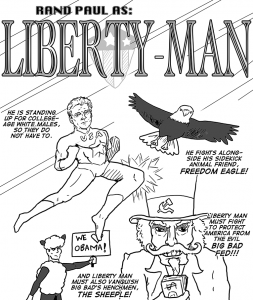When asked, I say that I am from Hong Kong. People always ask me why I don’t say that I am from China.
Never have I denied that I am from China. I just feel more attached to Hong Kong—a tiny dot on the world map—than the gigantic motherland right above it.
I am an exchange student from Hong Kong; or, China; or, to be most accurate, Hong Kong Special Administrative Region in Southeastern People’s Republic of China. To lessen the pain of such an awkward introduction, I usually just say Hong Kong. But that doesn’t help me avoid the painful follow-up questions like, “Is that in China?” or “Why don’t you say you’re from China?” or “Is Hong Kong independent?”
Allow me to stress again that Hong Kong is indeed a part of PRC, in spite of its status as “special administrative region” (Oh, and it’s HKSAR, not Hong Kong SARs, please). We can be distinguished from our mainland: we speak Cantonese, not Mandarin, and we write with traditional instead of simplified Chinese characters. The two official languages—Chinese and English—make for easier supermarket shopping.
We have a different education system, our own stock market, government, legislative and judicial systems, and most importantly, our own unique culture. Still, most Hong Kongers are proud to be Chinese. We never wanted to become an independent country from mainland China. We treasure traditional Chinese values, like close familial relationships, collectivism, modesty, and diligence.
There was the hangover gloom back in 1997, when the British ended their 150-year colonization of the island. Many people immigrated to Canada back then for fear that Hong Kong would lose its uniqueness when it became a part of China. Deng Xiaopang, however, stemmed the tide of acculturation with his “One Country, Two Systems” idea that enables Hong Kong to preserve its own essence: free economy, capitalism, and indifference to politics, which has led to our current quasi-Western state.
Hong Kong is a unique blend of the East and the West, exemplified in our culinary fusions, and code-switching (using multiple languages in the same sentence) in our speech. Because we cannot completely identify completely with either China or the United Kingdom, we are forced to create our own amalgamated society. Personally, I’ve always been an admirer of the British culture. I fantasized about the refined English world. I understand British arrogance as British dignity and thought that all British men were aristocrats like Mr. Darcy from Pride and Prejudice.
I love British accents, and looked down on my friends who would joke about our bastarderized culture and language. They would add Cantonese particles to grammatically incorrect English sentences, constructed from direct translations of Cantonese, resulting in sentences like: “You eat rice mei ar?” meaning, “Have you had your lunch yet?”
Eventually, however, I came to treasure the inventive way we Hong Kongers make English our own, the manner in which we create our own identity. This is how we bond together and rescue ourselves from becoming cultural orphans. Chinglish is not bad or wrong—it’s simply a new variation of English.
You may say that Hong Kongers are somehow “lucky” to have been chosen as the eastern seat of the British Empire. Many of my fellow islanders consider themselves superior to the native Chinese, also referred to as “mainlanders.” Our doors opened far earlier than those of mainland China. We have been given more chances to interact with Western cultures and values and to do business with the West. We seem to have more liberty and freedom. This does not imply superiority: we are simply what we are, and I’m proud of that. So no, I won’t just say I’m from China.
Identity crisis? Hong Kong’s unique cultural fusion
By Joyce Wong
September 17, 2009
Read More
Subscribe
Login
0 Comments




